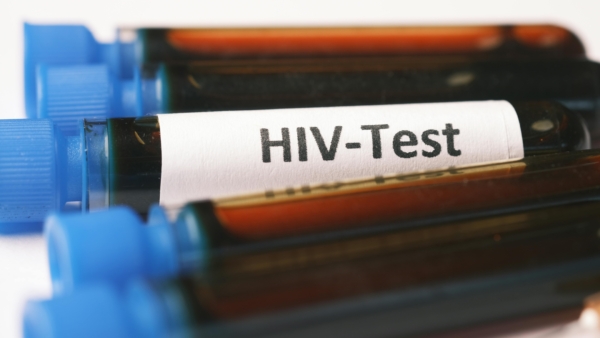
Danger of contagion: Tamaulipas criminalizes people with HIV
Translated with Deepl.com – Scroll down for original article in Spanish
The offence that penalises HIV carriers who have sexual contact with others is still in force. Morena has not supported the initiative to repeal it presented by deputy Magaly Deandar.
Tamaulipas criminalises and stigmatises people with HIV or any other disease considered ‘contagious’, ‘incurable’ or a ‘bad gene’. The offence of risk of transmission, a measure that punishes the risk of spreading a virus with imprisonment, is still in force.
The Penal Code of Tamaulipas maintains this offence with penalties ranging from six months to three years in prison. In twenty-five other states in Mexico, the penalties include the impediment to marry, denial of custody of one’s children and financial fines.
State law stipulates that a person who knowingly carries a venereal disease or HIV in an infectious period and who puts another person at risk of infection through sexual relations commits the offence of danger of contagion. In the case of spouses or cohabiting partners, the offence only proceeds if the offended party files a complaint.
In particular, article 203 of the Penal Code of Tamaulipas punishes HIV carriers. In a large part of the country, the ‘danger of contagion’ sanctions other sexually transmitted diseases.
Criminalisation encourages discrimination
According to the Mexican Network of Organisations against the Criminalisation of HIV, the criminalisation of the ‘risk of HIV transmission’ or similar concepts that appear in the legislation of the federal states generate more harm than benefits in terms of impact on public health.
This criminalisation undermines respect for and guarantees of human rights by promoting fear, stigma and discrimination, reinforcing the idea that people living with HIV or AIDS are criminals, dangerous and immoral.
The organisation points to the criminalisation of HIV patients, turning carriers into both victim and perpetrator. Focusing efforts on judging and punishing rather than promoting the prevention of contagion.
Tamaulipas seeks to decriminalise the danger of contagion
In 2022, deputy Magaly Deandar Robinson presented an initiative to repeal Article 203 in the Tamaulipas Congress. The Morenista argued that this measure violates human rights rather than recognising the institutional vacuum on the part of the public health service.
‘More than a question of laws, it is a question of human rights. That is how it should be for everyone,’ the legislator for Reynosa explained in an interview for Elefante Blanco,
Despite international recommendations from organisations such as the United Nations (UN), this proposal was rejected by the Morena majority. However, Deandar Robinson emphasised, the state congress could take it up for a second time in the next three months.
Magaly Deandar recognised that although this illicit act sought to stop the HIV pandemic, it ended up criminalising and making it difficult for people and carriers to approach specialised care centres.
‘It is the perfect time to reactivate the government to carry out HIV prevention tasks,’ she added.
In 2024, Mexico City, Nayarit, Jalisco, Aguascalientes, San Luis Potosí and Tabasco removed the danger of contagion from their penal codes.
Peligro de contagio: Tamaulipas criminaliza a personas con VIH
El delito que sanciona a las personas portadoras de VIH que tienen contacto sexual con otras sigue vigente. Morena no ha acompañado la iniciativa para derogarlo presentada por la diputada Magaly Deandar.
Tamaulipas criminaliza y estigmatiza a personas con VIH o alguna otra enfermedad considerada «contagiosa», «incurable» o un «mal venero». El delito de peligro de contagio, medida que castiga con cárcel el riesgo de propagación de un virus, sigue vigente.
El Código Penal de Tamaulipas mantiene este ilícito con penas que van de los seis meses a tres años de prisión. En otros veinticinco estados de México, las penas incluyen el impedimento para casarse, negar la custodia de sus hijos y multas económicas.
La ley estatal estipula que comete peligro de contagio la persona con conocimiento de ser portador de un mal venéreo o VIH en periodo infectante y que pone en riesgo de contagio a otra mediante relaciones sexuales. En el caso de cónyuges o concubinos, el delito procede únicamente si él o la agraviada lo denuncia.
De manera particular, el articulo 203 del Código Penal de Tamaulipas castiga a portadores de VIH. En gran parte del territorio nacional, el “peligro de contagio” sanciona otras enfermedades de transmisión sexual.
Criminalización fomenta la discriminación
De acuerdo con la Red Mexicana de Organizaciones contra la Criminalización del VIH, la penalización del “riesgo de contagio del VIH” o figuras análogas que aparezcan en las legislaciones de las entidades federativas generan más daños que beneficios en términos de impacto en la salud pública.
Esta penalización atenta contra el respeto y garantía de los derechos humanos al promover el miedo, el estigma y la discriminación, fortaleciendo la idea de que quien vive con VIH o SIDA es criminal, peligroso e inmoral.
Dicha organización señala la criminalización de la que son víctimas los pacientes con VIH al convertir al portador en víctima y victimario. Centrando los esfuerzos en juzgar y castigar en lugar de fomentar la prevención del contagio.
Tamaulipas busca despenalizar el peligro de contagio
En 2022, la diputada Magaly Deandar Robinson presentó una iniciativa para derogar dicho el artículo 203 en el Congreso de Tamaulipas. La morenista argumentó que esta medida vulnera los derechos humanos antes que reconocer el vacío institucional por parte del servicio de salud publica.
“Más que un tema de leyes, es un tema de derechos humanos. Así debería de ser para todos”, explicó la legisladora por Reynosa en entrevista para Elefante Blanco,
Pese a las recomendaciones internacionales por organismos como la Organización de las Naciones Unidas (ONU), esta propuesta fue rechazada por la mayoría de Morena. Sin embargo, enfatizó Deandar Robinson, el Congreso estatal podría retomarla por segunda ocasión en los próximos tres meses.
Magaly Deandar reconoció que aunque esta ilícito buscó frenar la pandemia por VIH, terminó por criminalizar y dificultar el acercamiento de las personas y portadores a los centro de atención especializados.
“Es el tiempo perfecto para reactivar al gobierno para realizar tareas de prevención contra el VIH”, agregó.
En 2024, Ciudad de México, Nayarit, Jalisco, Aguascalientes, San Luis Potosí y Tabasco retiraron el peligro de contagio de sus códigos penales.








